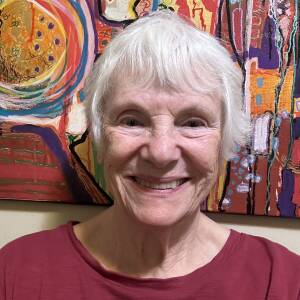Amazing Orchd
This orchid has been blooming for months. I can't remember exactly when I got it from Trader Joe's but it was a long time ago. This whole branch wasn't there when I bought it. It had another (still does) with three sub branches and they are still flowering. Meanwhile it started this branch and now it is full of flowers too. I think it is the longest blooming orchid I've ever had.
Today I went to a caregivers conference and I really liked both speakers. The main speaker was Denise Brown. I really liked her and what she said. Her opening talk was about the stages of caregiving. We hear a lot about the stages of the disease but not much about the stages we caregivers are going through. What she said made a lot of sense to me. There are six stages and I am in stage 4 right now, with short forays into stage 3. Here is what she said in a nutshell:
Stage 1 - It happens when you begin to realize your loved one (she calls it your caree) has a problem.
Expectant - Ask - Prepare
Stage 2 - It happens when you have verified your caree needs help
Freshman - Find - Experiment
Stage 3 - You are now well into caregiving with your nose to the grindstone
Entrenched - Receive - Routine
Stage 4 - You begin to accept and find things that work well for you.
Pragmatic - Welcome - Gain understanding of you and your caree
Stage 5 - Your caree is moving toward end of life
Transitioning - Allow - Walk with your loved one. Moving from doing to being.
Stage 6 - Your caree's end of life.
Treasure - Share lessons with others. Memories and love. Allow yourself time to grieve.
Denise gave two more sessions and they were good and meaningful too. One was on family relations and the other was on picturing your future in the midst of caregiving.
The other speaker was Joel Bergsbaken, Program Coordinator for the Hearing, Speech and Deaf Center at Western Washington University. I found his talk very useful too. I came to better understand the impact of deafness on staying connected and learned some strategies I could use to help Arvin better understand what I'm saying now that he has no hearing aids. It is normal in the course of his disease to stop using some of the things that help you. He kept taking off his hearing aids and they ended up in the drain trap of the washing machine at Silverado. Given their high cost I decided not to try to replace them.
The conference was supposed to end at four but instead ended at three so I had time to visit Arvin. So I did and met Helena there. She stayed for dinner and I headed home because I was stuffed from all the great food they gave us at the conference.
At the end of the day I am tired from all the information and the time with Arvin. But I feel it was a good day since it helped me figure some ways to better care for Arvin and myself.

Comments
Sign in or get an account to comment.


